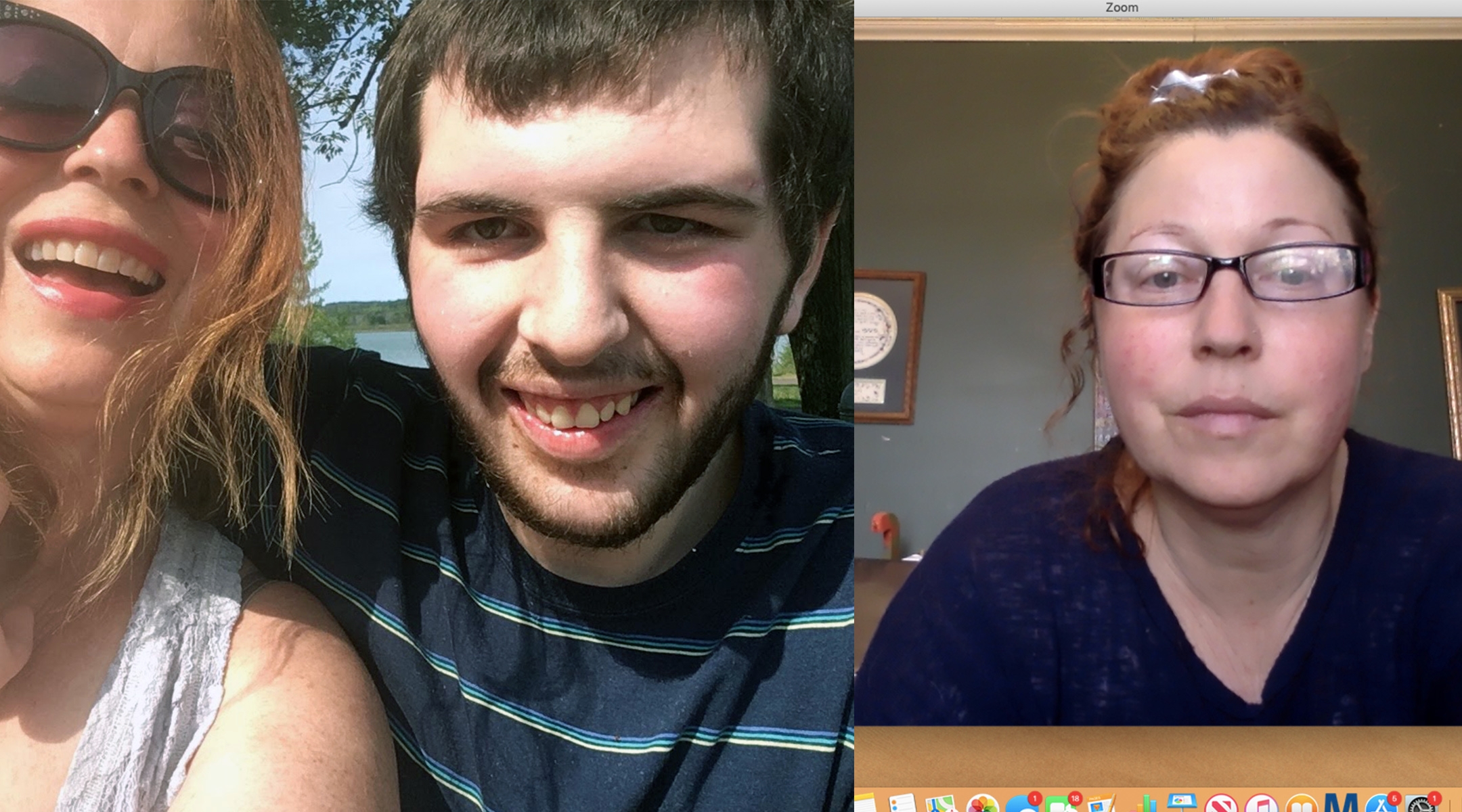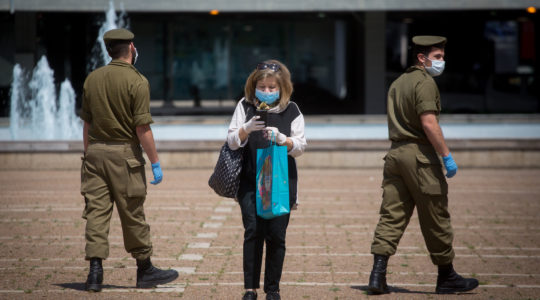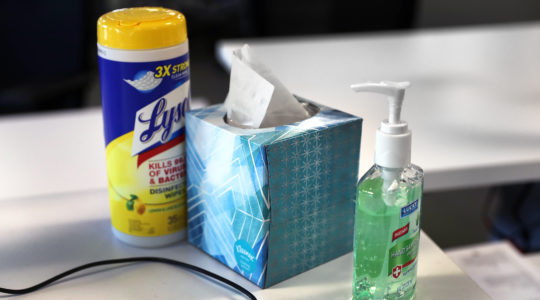PHILADELPHIA (JTA) — When I first heard reports about the novel coronavirus hitting China, I never imagined the personal implications that it would have for my son, my family and me.
I know that parents everywhere are going stir crazy and holding so much stress as they balance working from home (if they are so fortunate) with child care, online school and checking in on elderly relatives. I hear you — I am right here in it, too, with my 14-year-old.
While you may naturally want to flee from the forced intimacy of being nonstop with your kids, know that there are families who are suffering through this moment in a very different way because they can’t be with their kids. At all.
My 17-year-old son, George, has autism, combined with an intellectual disability, and requires a high level of daily support. When adolescence hit George a couple of years ago, it came on like a proverbial brick. The mismanagement of his medication as an outpatient became disastrous. When a manic episode began (prior to the formal diagnosis of bipolar disorder), my son nearly died after running without abandon into a street of cars. We knew it was time that we had to try regulating his medical and behavioral needs as an inpatient — for his safety and for ours.
The day we took him to the residential treatment facility was the hardest of my life, and I prayed daily that he would forgive me and somehow know that his father and I were doing this to help him get better and move through the hard, dark time so he would be able to live a happy and meaningful life.
A year and a half later, George is doing amazingly well. He looks brighter, he’s more active and his self-regulation has dramatically improved. He has benefited from being with an incredible medical and behavioral staff 24 hours a day, seven days a week. Pushing almost 50, working full-time and raising a younger teenage child, I know I don’t have the capacity to keep George safe at home right now.
Since October, George was coming home every Saturday, playing ball with his dear dog, watching his favorite videos and snuggling with his Dad, sister and me. In early January, we started adding Saturday sleepovers, which were mostly going well. Things felt like George’s life, and ours together as a family, were moving forward — until the coronavirus pandemic.
We live in Pennsylvania’s Montgomery County — the virus is spreading quickly here. One weekend ago, we were told that George could not come home, but that we would be able to go to his campus and hang out for two hours each Saturday and Sunday.
When I arrived at 10 a.m. Saturday, George was sleepy. He’d been up all night. I tried to entertain him, but after a few hugs and devouring the treats I had brought, he fell asleep on the floor of the visiting room. I had no choice but to call staff.
I didn’t know that it would be the last moment I would be in the same room with him, indefinitely. With the virus spreading and social distancing the only way we prevent its spread, George’s facility is doing the right thing and keeping visitors from the campus now.
I can’t locate the words to describe the way my heart is breaking and that a pit in the bottom of my stomach hasn’t left since I got this news. I am using all of my spiritual practices — yoga, walking, gratitude, singing the morning blessings and saying the Shema before bed — to help get through, moment by moment. I am part of an incredible synagogue community, where members are reaching out to support one another virtually. I am grateful for all the support. I send George all my love, all day long — I hope that he is feeling it.
His amazing staff was able to schedule Zoom calls for families and I saw him today — on the screen. I blew kisses and told him how much Mommy misses him, and that when this hard time is over, we would all be together again.
I am blessed to know that my son is safe and being cared for; we love and respect the staff who are working harder than ever to support his needs. Some parents and children are separated because of a child being in a hospital or a juvenile detention facility. Other children, at our country’s border, will remain terrified and lonely, separated from their parents with no end in sight.
As hard as this feels right now, I can imagine a time, hopefully in a few weeks, when I’ll be able to wrap my arms around my son again, but this moment reminds me that all of our stories are intertwined and something can be learned from each of them. I’m grateful to be able to share my family’s.
JTA has documented Jewish history in real-time for over a century. Keep our journalism strong by joining us in supporting independent, award-winning reporting.







